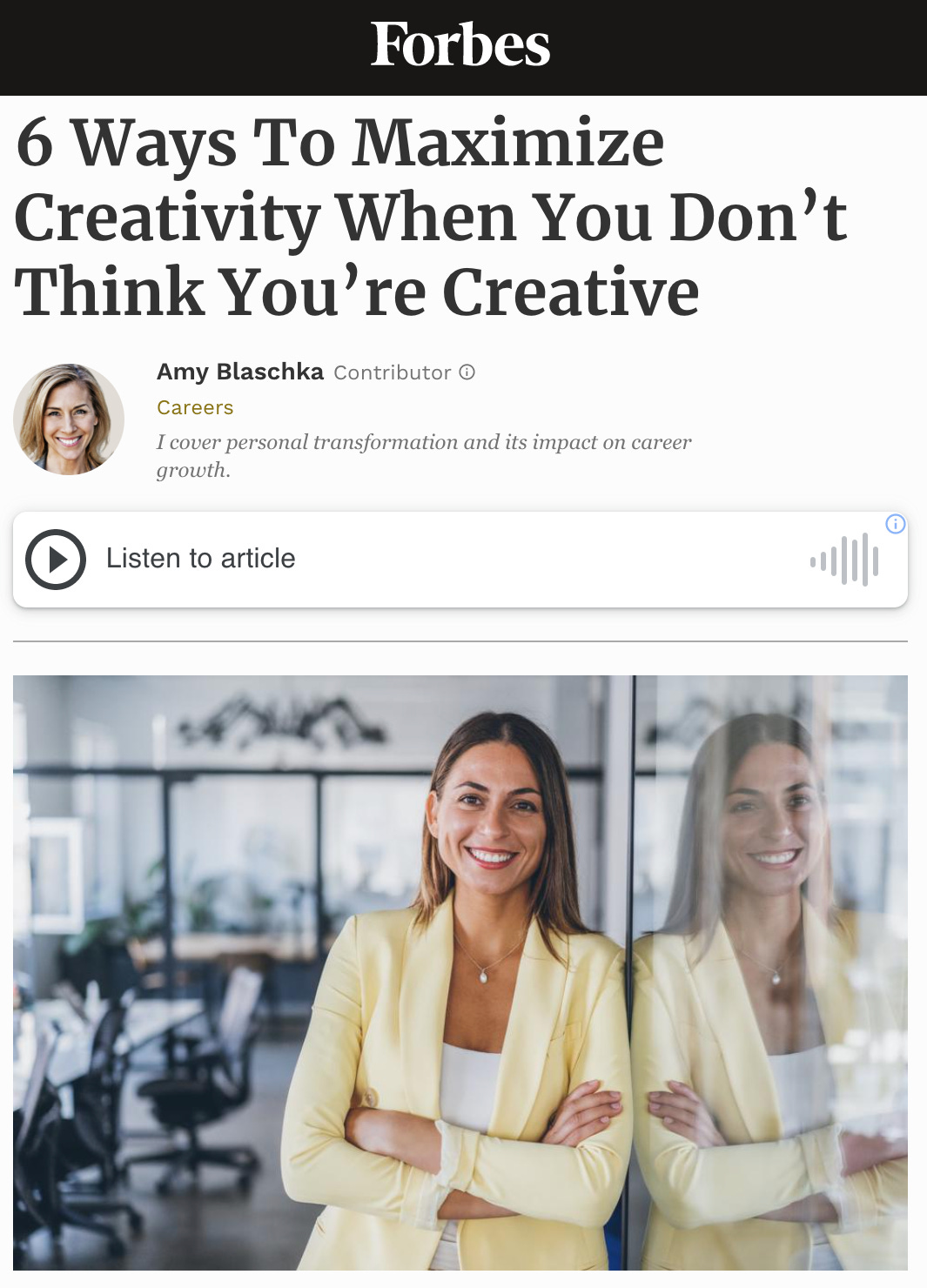A while back, after my newsletter on feeling “meh,” something unexpected happened: I had a half dozen people tell me that I was crushin’ it.
They said there was a lot of energy in everything they saw from me. That I’m prolific (oh, good word!) with my content. And a general sentiment that I’m doing so well and they’re curious to know my secret.
Huh, weird.
As much as I appreciated their kind words and sharing their observations, I still fell into the trap of questioning them.
(And if I’m honest, questioning myself.)
Maybe you can relate?
How is it that you can feel like you’re mediocre yet have others say that by all appearances, it’s quite the opposite?
Because your (and when I say your, I also mean my) reality is warped.
The truth is that your biggest career saboteur is often someone you wouldn’t expect who can be harsher than any external force: YOU.
Here’s how to quiet your inner critic:
Think progress, not perfection
When things don’t exactly go as planned, reframe your expectations and perception—taking a risk results in one of two things: success or learning. Either way, that’s progress worth celebrating.
Swap self-criticism for supportive self-talk
Many of us unconsciously fall victim to self-sabotaging talk. By upping your awareness of your use of negative self-talk, you’ll see how self-defeating it can be and can instead replace it with something more supportive.
Treat yourself the way you would a treasured friend
Cut yourself some slack and employ self-compassion to help you reframe the situation, view yourself as a work-in-progress, and treat yourself with kindness.
Ask for feedback from trusted allies
When you see yourself through the eyes of a friend, mentor, or colleague, you’ll get a more balanced and supportive perspective than your own and quell your self-sabotage.
Prioritize your well-being
Being intentional with your self-care not only replenishes you by nourishing your body, enriching your mind, and recharging your spirit; it also helps silence your inner critic.
Another way your reality is warped?
Thinking that creativity is reserved for a chosen few.
EVERYONE can cultivate this essential soft skill* to perceive the world in new ways, find hidden patterns, make connections between seemingly disparate things, and generate innovative solutions. When you’re creative, you’re able to turn new and imaginative ideas into reality.
And in my latest Forbes article, I share why you don’t have to be a “creative” to be creative.
Here’s to quieting our inner critics and creating a new reality!
Shine on,
Amy
P.S. Now that we’re inbox-exclusive, you might want to follow my musings across the interwebs on Forbes, LinkedIn, Twitter, and Instagram.
P.P.S. When I’m not writing this newsletter or harboring a warped sense of reality, I’m a social media ghostwriter. (Yep, that’s a thing). I help founders, entrepreneurs, and CXOs craft their stories to communicate and connect better by magnifying their reach and impact. (Think personal branding and thought leadership.) Learn more here.
P.P.P.S. You, my coruscant friend, have great taste in newsletters—thanks for subscribing! Be sure to check out the archives to catch up on previous issues, and feel free to share this one with your friends. Or better yet, invite them to join our Illuminate Me tribe!
*I want you to learn how to cultivate and apply soft skills to your career, so I’ve created a multi-week series of articles on Forbes. My most recent article joins these previously published pieces:
This Soft Skill Helps Leaders Have (And Retain) More Innovative And Productive Teams (Empathy)
How To Harness The Power Of This Soft Skill To Immediately Electrify Your Career (Persuasion)
7 Easy Ways To Connect Better With Your Professional Colleagues (Connecting with others)
3 Ways To Master This Highly Valuable And Often Overlooked Leadership Soft Skill (Listening)
5 Ways To Sharpen The Soft Skill Every Leader Needs For Career Success (Communication)









